Dill is good for digestion, pickling, anti-inflammatory support, sleep enhancement, and elevating both savory and sweet dishes. This comprehensive guide reveals exactly what dill is good for beyond just pickles, including its scientifically-backed health benefits, professional culinary applications, and seasonal harvesting techniques that maximize flavor impact.
What Dill Is Actually Good For: The Complete Answer
When people ask 'what is dill good for,' they're usually looking for practical applications beyond basic pickling. Dill (Anethum graveolens) serves multiple essential purposes across culinary, medicinal, and preservation contexts. Its unique chemical composition delivers both flavor and functional benefits that make it indispensable in well-stocked kitchens.
- Primary digestive aid - Contains carvone and other compounds that reduce bloating
- Pickling essential - Provides distinctive flavor and antimicrobial properties
- Anti-inflammatory support - Contains flavonoids like quercetin
- Natural sleep enhancer - Mild sedative properties in dill tea
- Calcium absorption - Supports bone health when consumed regularly
- Culinary flavor amplifier - Works with fish, potatoes, yogurt, and eggs
- Seasonal preservation - Extends shelf life of preserved foods
- Antimicrobial action - Inhibits certain bacteria and fungi
- Cultural culinary bridge - Connects global food traditions from Scandinavia to India
- Home gardening benefit - Attracts beneficial insects like ladybugs
Table of Contents
- What Exactly Is Dill?
- 5 Science-Backed Health Benefits of Dill
- Professional Cooking Tips: How to Use Dill Effectively
- Fresh vs. Dried Dill – When to Use Each
- Why Dill Is Essential for Perfect Pickling
- Dill Across Cultures – Global Culinary Applications
- Seasonal Insights: Maximizing Dill's Flavor Potential
- Surprising Facts About Dill's Historical Uses
What Exactly Is Dill?
Dill (Anethum graveolens) is an annual herb native to the Mediterranean and parts of Asia. Known for its lacy leaves and yellow flowers, it's been used for culinary and medicinal purposes for thousands of years. Its flavor is fresh, grassy, with a hint of anise or celery — a unique profile that makes it versatile but also easy to misuse if you're not careful. Understanding what dill is good for requires recognizing both its delicate flavor profile and functional properties.

5 Science-Backed Health Benefits of Dill
While many search for what dill is good for in cooking, its health applications are equally important. Research reveals several evidence-based benefits:
- Digestive Support: Dill contains compounds that can soothe indigestion, reduce bloating, and help relieve gas. Chewing dill seeds after meals was once common practice in many cultures for digestive aid.
- Anti-Inflammatory Properties: Studies suggest dill may have mild anti-inflammatory effects due to flavonoids like quercetin, making it beneficial for those seeking natural inflammation management.
- Calcium Absorption: Rich in calcium, dill may support bone health when consumed regularly in moderate amounts - a key benefit often overlooked when considering what dill is good for.
- Calming Effects: Dill has mild sedative properties that can help with sleep and relaxation. Herbal teas with dill are often recommended for those struggling with insomnia.
- Antimicrobial Action: Dill essential oil has shown promise in inhibiting the growth of certain bacteria and fungi, explaining its historical use in food preservation.
| Benefit | Description | Scientific Evidence Level |
|---|---|---|
| Digestive Aid | Reduces bloating and gas through carvone compounds | Moderate clinical evidence |
| Bone Health | Supports calcium absorption | Promising preliminary research |
| Anti-Inflammatory | Contains quercetin and other flavonoids | Limited human studies |
| Calming Effect | Mild sedative properties aid sleep | Anecdotal and early research |
| Antimicrobial | Natural food preservation properties | Strong laboratory evidence |
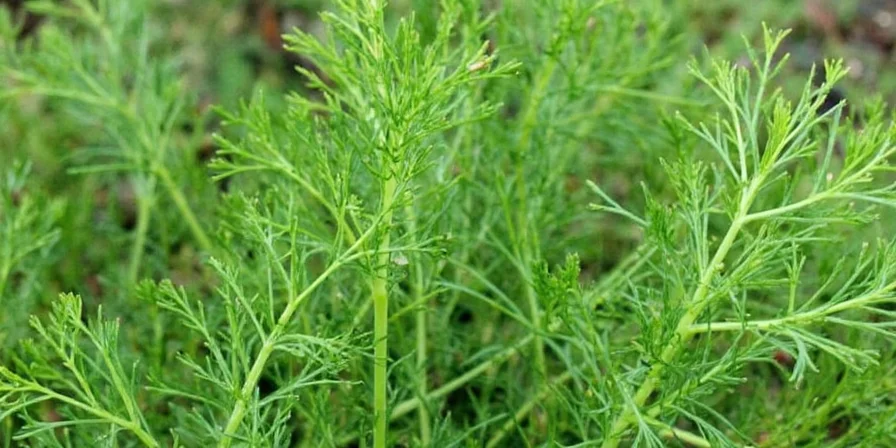
Professional Cooking Tips: How to Use Dill Effectively
Understanding what dill is good for in cooking requires knowing how to maximize its delicate flavor. Professional chefs employ these techniques:
- Timing is Critical: Dill's delicate flavor fades quickly with heat, so add fresh dill during the last 5-10 minutes of cooking or use as a garnish for maximum flavor impact.
- Strategic Pairings: Combines perfectly with fish (especially salmon), potatoes, yogurt-based sauces, cucumbers, and eggs - these combinations highlight what dill is good for in various dishes.
- Infusion Techniques: Create dill-infused olive oil by gently heating fresh dill in oil for dressings or drizzling over roasted vegetables.
- Preservation Methods: Freeze dill by chopping and mixing with olive oil in ice cube trays for up to six months of flavor retention.
- Harvest Timing: For home gardeners, harvest dill just before flowering for peak essential oil concentration and maximum culinary benefit.
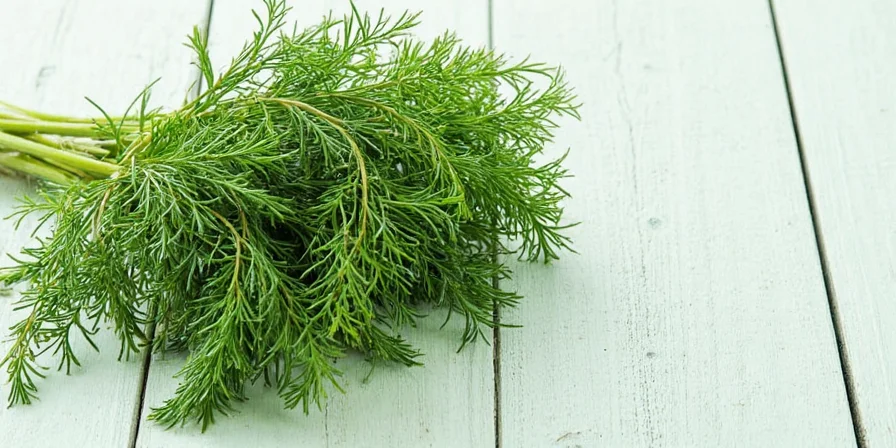
Fresh vs. Dried Dill – When to Use Each
The question of what dill is good for often depends on whether you're using fresh or dried varieties. Each has distinct advantages:
| Consideration | Fresh Dill | Dried Dill |
|---|---|---|
| Flavor Profile | Vibrant, bright, aromatic with grassy notes | More muted, earthy with concentrated bitterness |
| Best Culinary Uses | Garnishes, cold dishes, quick sautés, finishing touches | Slow-cooked dishes, soups, baked goods, spice blends |
| Storage Duration | 3–4 days refrigerated with proper care | 6–12 months in airtight container |
| Seasonal Availability | Peak June-August, limited off-season | Year-round commercial availability |
| Substitution Guidelines | Use 3x amount of fresh for equivalent dried flavor | Use 1/3 of fresh amount for equivalent flavor |

Why Dill Is Essential for Perfect Pickling
The most common question about what dill is good for centers on pickling - and for good reason. Dill's role in pickling goes beyond flavor:
Dill provides the distinctive aroma and slight bitterness that complements vinegar and garlic perfectly. More importantly, dill contains natural antimicrobial compounds that aid the preservation process. The dill flowers (often called 'dill heads') contain higher concentrations of these beneficial compounds than the leaves.
Professional picklers recommend using whole dill heads instead of chopped leaves. They release flavor more slowly during fermentation, resulting in more consistent flavor development and better preservation. For traditional dill pickles, use one dill head per pint jar along with 1-2 garlic cloves for optimal results.
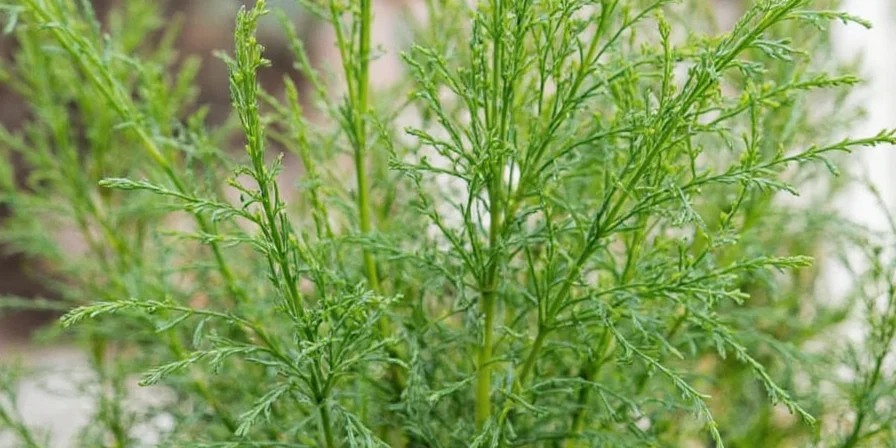
Dill Across Cultures – Global Culinary Applications
The question of what dill is good for varies significantly across global culinary traditions:
- Scandinavian Cuisine: Essential in gravlax preparation, sour cream dips, and new potato salads - Scandinavian chefs consider dill indispensable for balancing rich fish flavors.
- Russian/Ukrainian Dishes: Key ingredient in borscht and cold beetroot soups, where it cuts through earthy flavors and enhances digestion.
- Greek Mediterranean Cooking: Mixed into tzatziki, lemon dishes, and grilled vegetables, where its bright flavor complements olive oil and citrus.
- Indian Subcontinental Use: Dill seeds feature in spice blends like garam masala, particularly in South Indian curries where it aids digestion of heavy spices.
- Middle Eastern Applications: Used in yogurt sauces and fresh herb mixes that accompany grilled meats throughout the region.
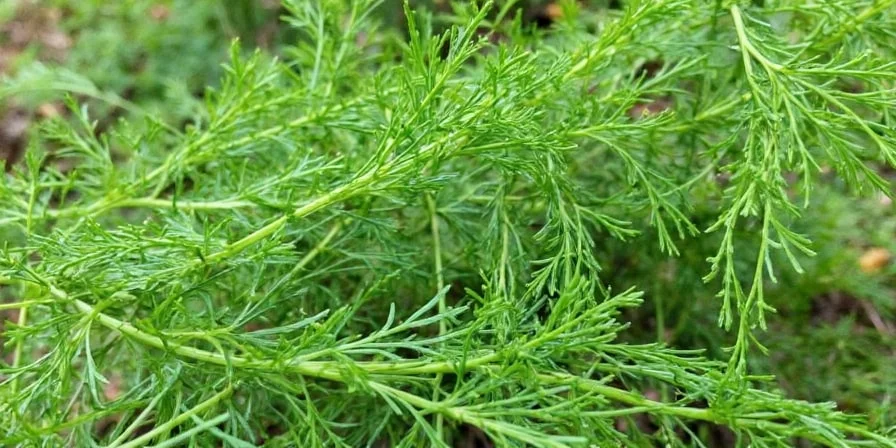
Seasonal Insights: Maximizing Dill's Flavor Potential
Professional chefs know that understanding what dill is good for requires recognizing seasonal variations:
Early summer dill (June) has the most delicate flavor profile, perfect for salads, fish dishes, and fresh applications where subtlety matters. As summer progresses into July and August, dill develops stronger, more robust flavors ideal for pickling and heartier dishes. The critical harvesting window occurs just before flowering when essential oil concentration peaks - this is when dill delivers maximum flavor impact.
This seasonal variation explains why supermarket dill often tastes flat compared to farmer's market varieties. Commercial growers typically harvest dill later in the season for better shelf life, sacrificing flavor intensity. For optimal results when exploring what dill is good for, seek out locally grown dill during early summer months when possible, or grow your own for peak freshness.
Surprising Facts About Dill's Historical Uses
Beyond contemporary culinary applications, dill has fascinating historical significance that reveals additional dimensions of what dill is good for:
- The name "dill" comes from the Old Norse word dilla, meaning "to lull," directly referencing its calming effects and digestive benefits.
- Ancient Egyptians included dill in embalming mixtures, recognizing its preservative and antimicrobial properties long before modern science confirmed them.
- Dill was referenced in the Bible (Matthew 23:23) as one of the herbs subject to tithing, indicating its economic importance in ancient times.
- Medieval Europeans placed dill around cradles to protect infants, believing in its calming properties for sleep.
- Traditional Scandinavian midwives used dill to support digestion during pregnancy, a practice with emerging scientific backing today.
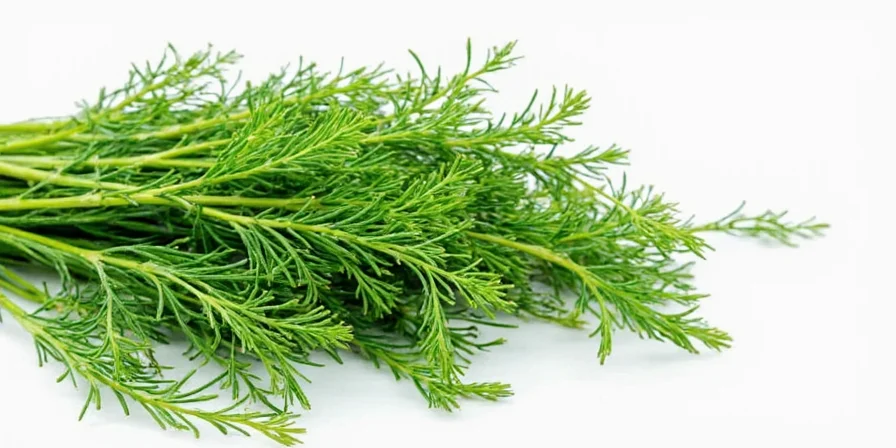
FAQs About Dill
What is dill good for in terms of health benefits?
Dill offers several evidence-backed health benefits including digestive support through compounds like carvone, mild anti-inflammatory effects from flavonoids such as quercetin, potential bone health support through calcium absorption, calming effects that may improve sleep quality, and antimicrobial properties that aid food preservation. While not a replacement for medical treatment, regular culinary use of dill contributes to a health-supportive diet.
When is the best time to add dill to dishes for maximum flavor?
For maximum flavor impact, add fresh dill during the last 5-10 minutes of cooking or as a garnish. Heat diminishes dill's delicate flavor compounds, so late addition preserves its characteristic taste. Dried dill can be added earlier in the cooking process as it requires time to rehydrate and release its flavors. When exploring what dill is good for in specific dishes, consider that different applications require different timing for optimal results.
Can dill genuinely help with digestion?
Traditional medicine practices across multiple cultures have long used dill to support digestion, and modern research provides some validation. The herb contains compounds like carvone and limonene that may help relax digestive tract muscles and reduce bloating. While scientific evidence in humans is still developing, many people report positive effects when consuming dill tea after meals. For best digestive results, steep one teaspoon of dill seeds in hot water for 5-7 minutes and drink after eating.
How can I preserve fresh dill to maintain maximum flavor?
To extend fresh dill's shelf life while preserving maximum flavor, treat it like cut flowers. Trim the stems and place in a glass with an inch of water, then cover loosely with a plastic bag and refrigerate. Change the water every two days. For longer preservation, freeze dill by chopping it and mixing with olive oil in ice cube trays. These dill cubes work perfectly for cooking and maintain flavor for up to six months. Understanding what dill is good for includes knowing how to preserve its delicate flavor profile.
What makes dill different from similar herbs like fennel?
Though they look similar, dill and fennel belong to different plant families with distinct flavor profiles. Dill has a grassier, more delicate flavor with subtle anise notes, while fennel is significantly sweeter and stronger. Dill fronds are finer and more feathery than fennel's thicker strands. The seeds also differ - dill seeds are oval and brownish, while fennel seeds are longer and greenish. In cooking, they're not perfect substitutes due to these flavor differences, which affects understanding what dill is good for in specific culinary applications.
Conclusion
So, what is dill good for? Beyond the obvious pickling applications, dill serves as a digestive aid, flavor amplifier, natural preservative, sleep enhancer, and cultural culinary bridge. Its unique combination of delicate flavor and functional benefits makes it indispensable in well-stocked kitchens. By understanding dill's seasonal variations, proper usage techniques, and global applications, home cooks can maximize both flavor and health benefits. Whether you're preserving summer vegetables, enhancing a fish dish, or supporting digestion naturally, dill offers versatile solutions that extend far beyond the pickle jar.
Now that you know exactly what dill is good for, you can use this versatile herb with confidence to elevate everyday meals and support your wellbeing simultaneously.

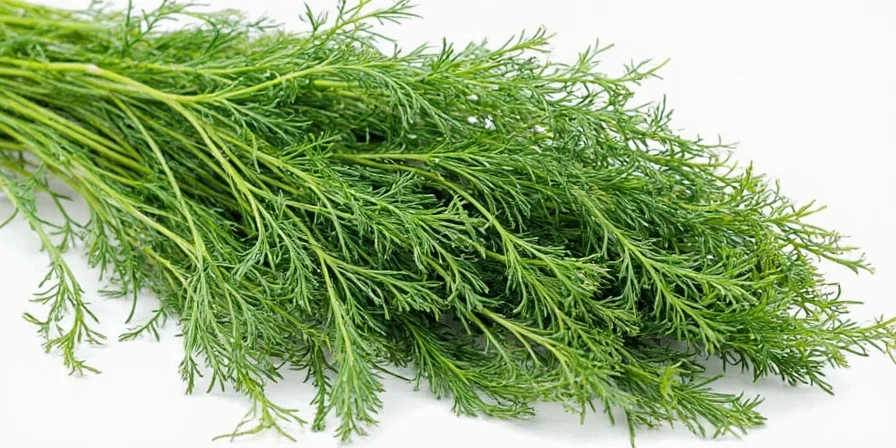









 浙公网安备
33010002000092号
浙公网安备
33010002000092号 浙B2-20120091-4
浙B2-20120091-4